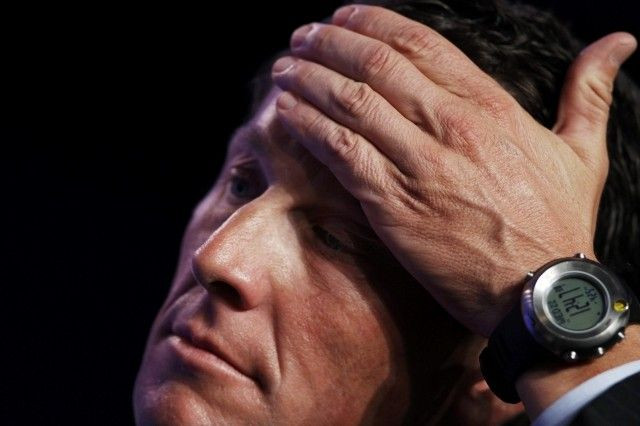What The Derek Jeter, Lance Armstrong Doping Accusations Could Mean For Future Athletes

The conversations about whether two of this generation's most popular athletes have used performance-enhancing drugs could be further proof that sports fans may never again see a day when questions aren't raised about the legitimacy of someone's performance.
On Friday, the U.S. Anti-Doping Agency, or USADA, announced Lance Armstrong "received a lifetime period of ineligibility and disqualification of all competitive results from August 1, 1998 through the present" -- just days after an ESPN talking head accused Derek Jeter, one of the most celebrated New York Yankees ever, of continuing to be a productive player possibly because of the use of substances illegal to the game.
During an episode of ESPN's "First Take," Skip Bayless openly suggested that Jeter, who is having a remarkably productive season at the age of 38, was using human growth hormone.
"I would have to be sight and hearing impaired not to at least wonder," Bayless said. "If you're Derek Jeter, would you think about using HGH right now? Because I would."
Jeter laughed off the accusation when reporters asked him about the comments. He even said that Bayless should be tested for banned substances, according to CBS News. Jeter then hit a home run in his third straight game.
Bayless received quite a backlash on his Twitter feed, but some fans have to come accept that -- in the wake of the infamous Mark McGwire and Jose Canseco admissions -- questions like Bayless' might always be asked. Many sports fans cited baseball's lack of an HGH test as a big problem for the sport.
While Jeter has won a handful of World Series titles as a leader of the most storied franchise in Major League Baseball through times when it needed him most, there might not be a more celebrated American athlete than Lance Armstrong. On Friday, the USADA's action effectively nullified Armstrong's seven Tour de France victories because the agency said he declined to pursue arbitration of the charges centered on his alleged use of prohibited substances.
Deadspin reported that much of the USADA's evidence consists of testimony from witnesses that might not be found credible in a federal court, a possible reason for Armstrong's insistence that the doping claims are bogus. The cyclist, who famously rebounded from testicular cancer, did not admit guilt and has passed every drug test he's been given.
Even though this week's two examples vary in their degrees of seriousness, they're the continuation of the fallout from the baseball steroids scandal. The two famous athletes are as beloved by their fans as anyone who ever competed in sports, yet they're still not above being accused of the use of performance-enhancing substances. There hasn't been much proof in either case, but -- unfortunately for fans and clean athletes alike -- the doping conversation doesn't seem to be one that will be fading away any time soon.
© Copyright IBTimes 2025. All rights reserved.





















